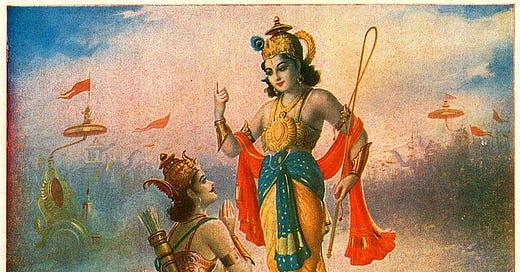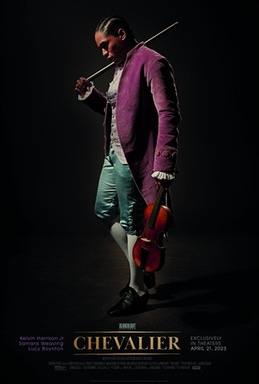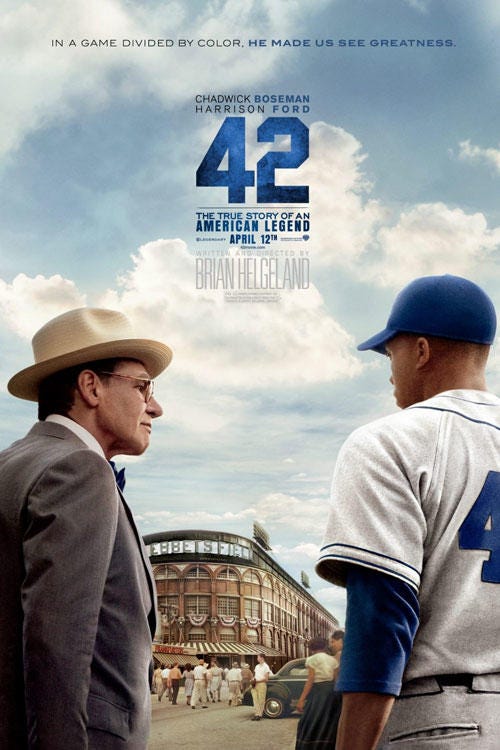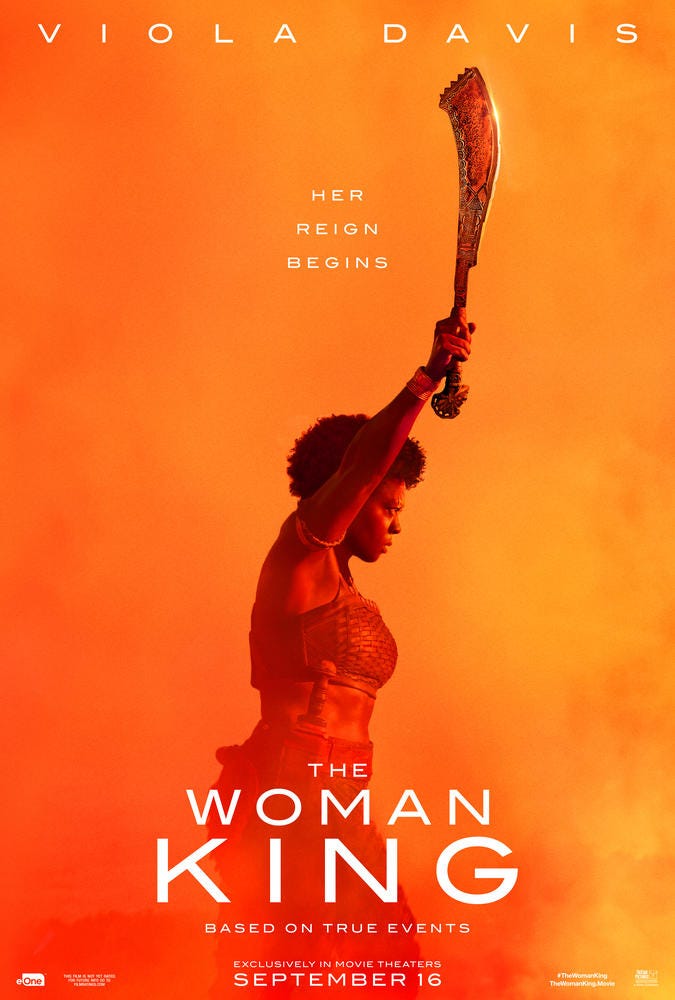Dear Mr. Martin Scorsese,
I decided to write to you again. Because now that you are getting so many accolades, we need to talk about what we’re gonna do with this money and fame. I mean it. “We.”
It is Sunday. Is not Sunday the day of celebration and rejoicing of the Source? The Bigness? The Greater-Than?
In my last public (free) post, I presented a desire for more movies of heroes rather than anti-heroes. Trustworthy people who are resilient and fight the forces of evil in the world. People we can look up to.
So let’s follow the road for this endeavor, shall we?
We can start with the Bhagavad Gita, Krishna’s words to the soldier/warrior Arjuna. A trustworthy hero is a kind of warrior, is she/he not? The spiritual kind?
Krishna says:
For a warrior, nothing is higher than a war against evil. The warrior confronted with such a war should be pleased, Arjuna, for it comes as an open gate to heaven.” 2:32
The manner in which one is to address evil, however, is clarified by another teacher, Jesus (also known as Yeshua). Yay, Jesus. I just love this one. Love love love him. He’s so brown and handsome, too.
You have heard that it was said, “Eye for eye, and tooth for tooth.” But I tell you, do not resist an evil person. If anyone slaps you on the right cheek, turn to them the other cheek also. And if anyone wants to sue you and take your shirt, hand over your coat as well. If anyone forces you to go one mile, go with them two miles. Give to the one who asks you, and do not turn away from the one who wants to borrow from you.” Matthew 5:38-42
While scriptural and ancient, many people find these teachings hard. Applying them to one’s life means losing the ego. They do not allow for any focus that boasts, “I will get my way.” Both teachings require Source, the Mother of All Inventions, and faith. Not my will, but your will, says the warrior.
What courage that takes. Much like the artist, who has no idea how her or his work will be received.
I present these scriptural words as the backdrop and context to three films featuring warriors. People we can look up to, Martin. Me and you and the whole humanity.
We know the battles of light and darkness well in White Hollywood films. We have figureheads on screen and behind the scenes, in the big name male directors and actors who seem to commandeer such respect. Look at Star Wars, Lord of the Rings. Our desire to watch good and evil battle it out. These wild Marvel and Batman films. So many superheroes! I know you are not a fan of the superhero films, Martin. I heard it somewhere because people tape so much of what you say, like you are a guru!
Are you a guru, Marty S? If you touch me, will I turn to gold? Or will I become a biscotti?
Back to the important stuff. Black Hollywood is creating powerful stories, even though their directors, screenwriters, and actors don’t get the same amount of funding, marketing, or recognition.
And it’s sad that when we really start looking at our concept of humanity—who it is who tells the universal story of the human condition—we still have a largely segregated film industry of storytellers. Progress has been made so that more diversity is in the business itself, but film stories often reflect an unconscious and typical, age-old divide of skin color and socio-economic class. Like life, unfortunately.
So let’s take a moment to review some Black Hollywood films that tell stories of heroes in human form, even as many people don’t know the actors, directors, writers, producers. Perhaps this post can change a few things.
Chevalier (2023)
Joseph Bologne, a violinist and composer in the era of the French Revolution, has an amazing story that was largely covered up. This movie shines the light in the most magical, beautiful way. And the screenwriter, a prodigy writer named Stefani Robinson, takes the lead in unearthing the story of Chevalier so a wider audience can have a sense of the depth and significance of figures that have for so long been unknown due to a dominant culture’s agenda and ethos. (Screenplays are the ground of films, you know. The screenplay is always the salt of the whole thing.)
Kidnapped from his home in Guadaloupe by his white French father, ripped away from his black mother, Joseph Bologna gets accepted into the French schools through his father’s contacts, and he is able to commingle with French nobility due to his musical gifts. His talents and gentlemanly nature allow him to hold a rare space in French culture of the time, even becoming friendly with the queen Marie Antoinette.
But while his talents are obviously superior to his white counterparts, Chevalier is often shoved to the side or mistreated because of the color of his skin. His love life is limited, too, for the reason of his skin color, though he does have a beautiful affair in which he risks death and hands being cut off. His bravery doesn’t stop there.
The very beautiful Kelvin Harrison plays this role with such taste, such poise, such power, and such grace. Wow, does this man shine! Statuesque, determined, with backbone. Does he fear evil? Maybe. Does he run from it? Hell, no. He walks right up to that m*&***k*er and says, “Go ahead, make my day” but silently, and in a noble and French way, without having to resort to any nasty French cuss words or holding a gun. And the people who love Chevalier’s music and see their city crumbling at the outset of the French Revolution stand in support of him and his nonviolent courage.
Whoever would be so unintelligent as to suggest that music cannot save a life? Music is the breath of our ancestors, the juice of angels flowing through a string. Even if does not save one, it prolongs in the happiest of ways.
Did you see Chevalier, Martin? Either way, let’s continue with some other must-sees! Maybe we can discuss over Capellini and shallots. (I think we should add a little fish to our meal, too. I’ll meet you in New York—it’s so lovely around the holidays.)
42 (2013)
Perhaps people have heard of Chadwick Boseman as Black Panther, which I haven’t seen, but did you witness his explosively captivating performance as Jackie Robinson in 42? 42 is the number of Jackie Robinson, a number no other baseball player will now use, because it is the number that belongs to a legend who integrated the game beyond racial barriers.
There were black baseball teams and white baseball teams. But the owner of The Brooklyn Dodgers, Branch Rickey (played by Harrison Ford) realizes that this segregation of black and white is not helping his love of baseball, or society. And he’s a Christian man. Mind you, he is not the kind of Christian man who walks stiffly through his house ranting about the annoying people in the world ruining America, the kind of “Christian man” who secretly wants to deprive others and give money to causes that divide rather than unite. This is the Christian man who actually knows the scripture and the words of Jesus, and warns Jackie Robinson that this is going to be a hard path, and that he can never fully understand what Jackie will have to go through being on that field with racist slurs and violence directed toward him, just for the color of his skin. This is the Christian man who says, “You will need to turn the other cheek when they try to hurt you, because if you do not, you will confirm all that they have said about you being an inferior life form. And you are worthy of this uniform.”
Damn, he was right, and also humble. It is heartening to know some people are true to love, especially in times when a populace struggles with hope. Rickey’s strategy and idea works for Jackie Robinson because he is willing to put everything behind him. He doesn’t let anyone intimidate him in his effort to get Jackie playing regularly. Anyone who does complain or puts up a fight about the newly integrated baseball team, gets this brick wall of a man whose mind is made up about the right path, and whose instincts were accurate.
So maybe Jesus has a valid point, about loving your enemies and offering them the other cheek when they attempt to hurt. Because the light simply shows what people are made of. And ugly things that are seen cannot be unseen. This is when positive change becomes ripe and new beginnings are formed.
Chadwick Boseman plays the role with beauty and ease. And providing almost as much—if not more—heart, is his co-star Nicole Beharie, who plays Jackie’s wife Rachel Robinson. It is her gift to help him maintain his stamina. Her strength has to be as great as his own to raise babies and plan a future in the midst of that struggle.
Faithful people who face evil…they have a different depth to them, don’t you know? I think we can call it wisdom.
Rustin (2023)
You may have heard of Bayard Rustin before the new film showed up on Netflix this past week. Most people have not heard of him, because Bayard Rustin was a Quaker. Quakers are weird. I am one.
(We get really focused on our leadings and we stand our ground and we say things people don’t want to hear.
Thank God for us!)
Rustin battled racism and prejudice against homosexuality in the midst of the Civil Rights Movement. This was a double whammy, requiring a whole different line of courage. Rustin was a person with ideas, conscience, education, depth and follow-through, and offered great and memorable quips to those who doubted him. And so Bayard Rustin assisted Martin Luther King, Jr. in his strategies and the March on Washington, but was not the one empowered to stand at the podiums. His sexuality, which he had no shame about, was the source of additional persecution, the politics of which during that era, made him even more anomaly and a seeming threat to both insiders and outsiders of civil rights.
This movie does an interesting job showing how politics, fear, and image could divide even those who seemed united for civil rights, in the leadership’s efforts to get something like the March on Washington accomplished.
Would discrimination and prejudice stop you, reader (and Martin S! Don’t forget Martin!) from doing the work you feel called to do? What if you begin realizing that the closer you got to your goals and activism, the more someone might come out of the shadows to murder you or harm you? This particular fear is something felt so palpably in watching Rustin. Pursuing a noble path in the face of much discrimination is not the safest way to go, even though it is necessary.
A warrior, alright.
The Woman King (2022)
Now, The Woman King is the kind of movie that makes you shake in your seat with love and power and excitement—not only because of the acting and epic-nature of the film, but also because it got made! This film got made! When it came out in 2022 and I sat in the theater watching it, I felt so much hope for Hollywood and the forward momentum of a new day. This story is about a tribe of women in Africa in the 1800s, and focuses on the fearless warrior Nanisca (played by Viola Davis), a woman so special she is designated “king” by an African leader. The film offers an acknowledgment of the kinds of enslavement and sexual abuse that many women have had to endure in patriarchal regimes…while they still manage to exhibit strength and beauty, resilience, and audacity. There are not many movies like this, made by all women, and shot with the big-ness that is more typical of Blockbuster films by men in Hollywood. Storytellers Dana Stevens and Maria Bello, and director Gina Prince-Bythewood, made something truly unique.
And yet—
If Quentin Tarantino had made such a film, or you, Martin S, or Steven Spielberg…well, what would have been the reaction then? All over The Academy film awards, correct? A lot of people knowing its name, cheering it on? Telling others at the bar, “Hey, did you see that one?”
But The Woman King did not even get a mention at the Oscars! No recognition for the amazing screenplay and story, the amazing acting and dance/movement choreography, for amazing directing, for cinematography that takes your breath away.
My friend who teaches cultural studies says she thinks it is because the film makes men too scared. “It is about women killing men,” she says. The Academy wouldn’t want women to get any ideas. Film is so influential to our psyches. If the culture had a big winning reminder that there have been so many centuries of rape, with perpetual suggestions that women are inferior, it may inspire some sort of uprising…perhaps?
So, considering The Academy has made some mistakes here and there—and big ones when it comes to gender and racial bias—we are all thinking here in
Ms. Wonderful Land
that we may need a new Captain of the Academy.
A capitan-a! Ay?
A new wizardess behind the curtain.
An Academy where gentlemen step aside and offer their seats, sometimes—or at least their voices—so that more women can receive equal footing. And this can happen alongside efforts to integrate Hollywood and tell stories of a progressive culture where all “tribes” unite under the banner of love. Black, white, Asian, Latin American, middle Eastern. You name it, let’s put people of various backgrounds in movies together.
Am I thinking too wildly big? Are my imaginings too…imaginary? Martin?
Since you have such a busy schedule, Martin, and it is unlikely you will want to work with me directly, with all the promotion you’re doing these days—whaddya say to helping me fund this Ms. Wonderful Film Club she-bang instead?
If you fund it, Martin, they will come.
So let’s meet and set something up for an adventure. A new scripture. Let’s be spiritual artistic warriors of a new era, and inspire future generations!
Cappellini. Shallots. Twinkly lights in a relatively quiet place. Pinot Noir. Skip the gluten-free bread. I like my bread full of gluten and warm, dipped in olive oil.
We can talk about it all, Chichi!
Call me, Juicer! I have a direct line, with no middle-man getting in the way.
Bisous,
Ms. Wonderful
*Martin Scorsese is the director of several films in Hollywood.








